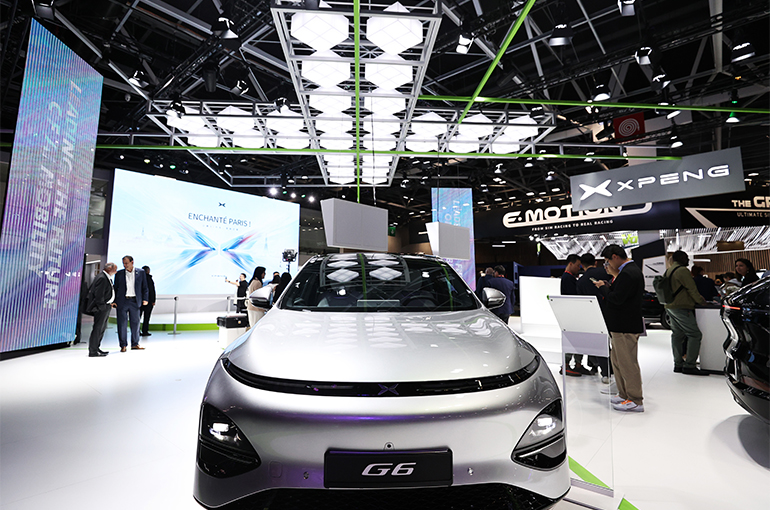 European Market Shrinkage, Tariffs Test Chinese Carmakers' Growth Plans
European Market Shrinkage, Tariffs Test Chinese Carmakers' Growth Plans(Yicai) Oct. 22 -- Chinese automakers are facing various challenges in expanding into Europe, mainly because of the shrinking European automotive market and the introduction of additional import duties on Chinese cars.
Over the past seven years, the European Union has introduced more and more carbon reduction policies and electric vehicle subsidies, creating room for Chinese new energy vehicle companies to enter the market.
Chinese car manufacturers took the recent Paris Motor Show by storm, bringing their latest and most popular models for European customers to experience. This was a clear sign of their strong desire to expand in Europe.
However, challenges have recently arisen for Chinese carmakers, including the declining market, very high entry barriers, and anti-dumping tariffs on China-made autos.
New car registration in the EU plunged nearly 19 percent in August from a year earlier, according to data from the European Automobile Manufacturers' Association. The registration of China-made EVs sank 48 percent to the lowest in 18 months in the period.
In the first eight months of the year, half of the Chinese automakers active in the EU sold less than 1,000 units, with their combined market share falling to below 3 percent.
As a result, some Chinese companies are beginning to adjust their long-term strategies in the EU. For example, Great Wall Motor announced in May that it would close its European headquarters in Munich, Germany, and terminate all employee contracts by Aug. 31. Yicai then learned that two more Chinese automakers are undergoing layoffs at their European branches.
The European Commission voted on Oct. 4 to levy anti-dumping tariffs of up to 35 percent on EVs imported from China for the next five years. The final implementation terms will be published by Oct. 30. The EU already imposes a 10 percent tariff on all imported cars.
After the EU announced the additional duties on Chinese EVs, Yicai learned that some Chinese automakers are considering using contract manufacturing for production in Europe to avoid rising costs.
But the most important aspect of overseas production is establishing a supply chain and the overall cost, Yang Ling, an executive for overseas operations at a Chinese automaker, told Yicai. The supply chain for fossil fuel-powered vehicles in Europe is fully developed, while that for EVs is still not as mature as in China, he noted, adding that if a supply chain is complete, overall costs will surely drop.
The profitability threshold for localized production is having an established brand with integrated distribution channels and after-sale services, while also reaching annual sales volumes of about 100,000 units, Yang said, adding that only a few companies can meet such requirements at the moment.
"We shouldn't assume that Chinese EV makers could replicate their success in China in the EU," Yang noted. If a 1 percent market share is considered a sign of initial acceptance, most Chinese companies, except for SAIC Motor's MG brand, have not crossed this threshold yet.
A difference between the European and Chinese markets is that European customers still see cars as a means of transportation and do not pay too much attention to technological features like Chinese customers, according to insiders from the overseas divisions of Chinese automakers.
Moreover, Europe is far behind China in the development of intelligent connected vehicles, so the demand for smart features among European users is not high, the insiders added.
In February, Yang told Yicai that the European business of Chinese carmakers would likely diverge, with the successful ones achieving globalization and the unsuccessful ones stepping out from overseas markets. He now believes his prediction is about to become reality.
Wang Tao, an executive at the overseas division of another Chinese auto brand, said it has two pieces of advice for carmakers that entered the European market around 2018. The first is a sustainable product supply to ensure the recovery of initial investments, and the second is sufficient attention to compliance, ensuring safe and stable operations.
Editor: Futura Costaglione